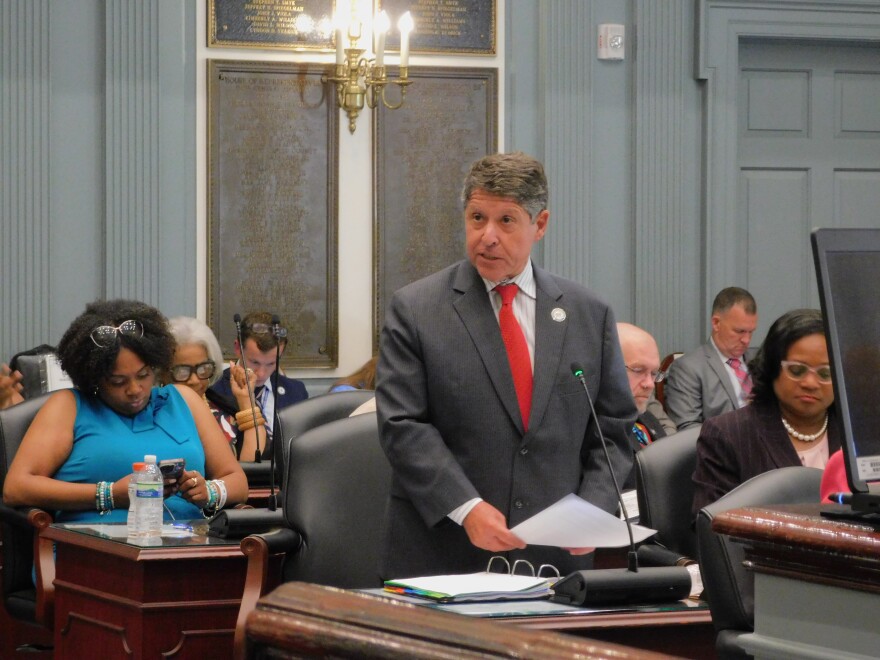Both chambers of the Delaware General Assembly unanimously overturn Gov. John Carney’s veto of a bill that would restructure the State Employee Benefits Committee (SEBC) — the body in-charge of choosing state health insurance plans — and its meeting procedures.
State Rep. Paul Baumbach’s (D-Newark) bill aiming to increase transparency within the committee that chooses state retiree health insurancea bill that would restructure the State Employee Benefits Committee plans passed the General Assembly with unanimous bipartisan support in May.
On Tuesday, Carney announced his decision to veto that bill.
The legislation removes the secretary of the Department of Human Resources as the co-chair of the SEBC, removes the controller general as a voting member and adds two legislative-appointed state pensioners to the body.
It also requires the state to communicate to state retirees any changes in benefits coverages, as well as requiring the committee to provide the meaningful opportunity for public comment before voting on plan changes.
In his veto statement, Carney wrote, "Unlike the State leaders that would be removed from the SEBC under this bill, even a-well-intended appointee under HB 282 would have no obligation to protect and secure the State's overall fiscal health. In fact, they would have every incentive to oppose any proposal that might negatively impact their personal interests."
Baumbach responded to this during the House's vote to overturn the veto on Wednesday, disagreeing with Carney's concern that state pensioners won't vote for cost-saving measure.
"I don’t believe that that was intentional, but I think that that can easily be felt as insulting to those who have served on the SEBC and those who will serve the SEBC in the future," he said.
Carney also wrote he believes the restructuring of the SEBC will likely lead to higher taxes, reduced state services or a greater cost burden on active state employees.
While State Rep. Bryan Shupe (R-Milford) voiced his support for the bill, he noted Carney’s concerns over the state remaining fiscally conservative resonated with him.
“We need to make sure that we save for the people that we want to protect. We have talked about making sure that we manage our budgets in a way that [is] fiscally responsible, that we save for the future."
Carney released a statement in response to the overturn, saying he still believes the bill is “not smart public policy,” but says he looks forward to finishing the session working together with legislators:
"As I said in my veto statement, this bill will make it harder for state leaders to manage over $1 billion in health care expenses — roughly one sixth of our state budget. That’s not smart public policy. It puts the interests of Delaware taxpayers at risk. It could lead to higher taxes and limit our ability to give pay raises to teachers, active state employees and pensioners, as we’ve done the last several years," he said.
"With that said, sometimes we have disagreements with members of the General Assembly. This is one of those times. I look forward to finishing this session by working together with legislators and doing as much good as we can for the people we’re fortunate enough to serve.”
Following both chamber's votes, the bill is now officially enacted.
On Wednesday, Carney allowed a bill removing the option of switching current state retirees to a Medicare Advantage plan to enact without his signature.
While this was Carney’s ninth veto as governor, it was the first time the legislature overturned one during his administration.




